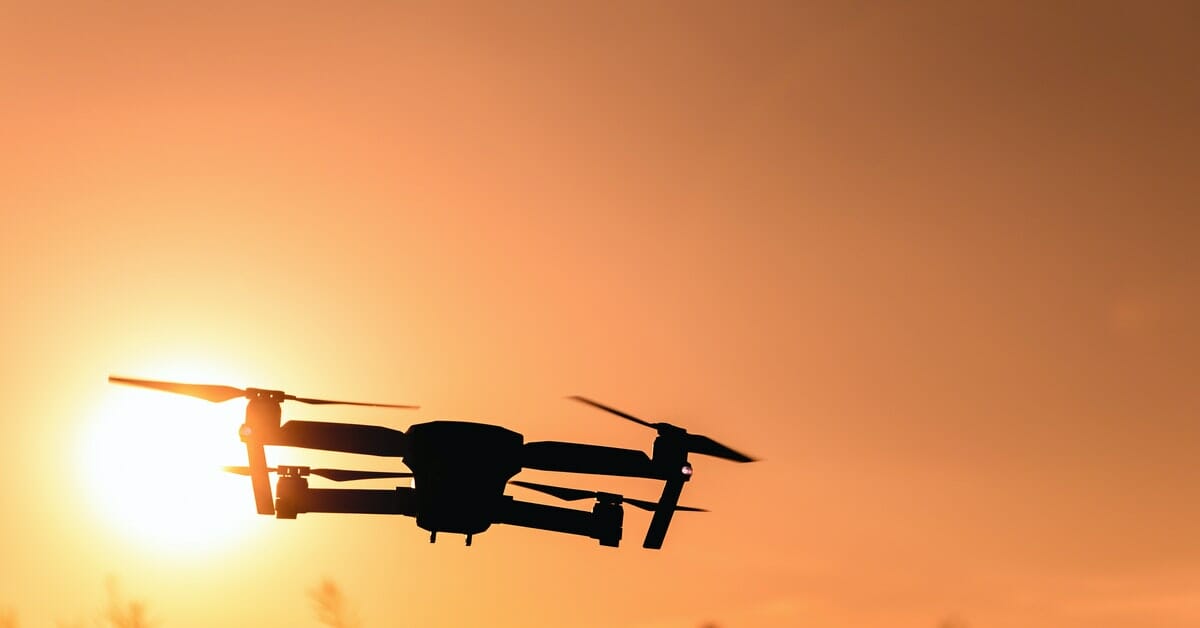Drones are “new” or at least have appeared on the scene as high tech devices that receive and can send large volumes of electronic information both “real time” and “stored”. For better or for worse, drones will be regulated in various ways and will “fit” into legal principles concerning, as an example, liability for actions that drones may perform. Consider this an overview of applicable legal principles.
Let’s start with regulation at the federal level. That topic begins with United States v. Causby, a 1946 decision from the United States Supreme Court. Causby addressed whether overflights by military aircraft over private property constituted a “taking” for which the property owners were entitled to compensation. Suffice it to say that the Court concluded that “[f]lights over private land are not a taking, unless they are so low and so frequent as to be a direct and immediate interference with the enjoyment and use of the land”.
Flash forward to the present day. The Federal Aviation Administration has asserted its jurisdiction over the regulation of drones. Indeed, it has proposed regulations for drones. For a discussion of regulatory initiatives at the federal level see the New York Times article by Nick Wingfield, “Regulators Propose a Drone Registration System.” available at: http://www.nytimes.com/2015/10/20/business/regulators-propose-a-drone-registration-system.html?_r=0.
Here’s what the FAA says in a release titled, “Fly Safe With Your Drone”:
You’re headed to the stores on Black Friday to buy that shiny new camera-equipped drone you’ve been yearning for. You can’t wait to get it into the sky and let loose your inner high-flying aerial photographer. Right?
Did you know you’re also going to be a pilot?
When you fly your drone anywhere in the nation’s airspace, you automatically become part of the U.S. aviation system. Under the law your drone is an aircraft. So while the rules for drones may be different, you have the responsibility to operate safely, just as a Cessna or 747 pilot does.
So, it sounds like drones should be treated as aircraft and that the federal government might have something to say about what we drone operators do! (Yes, it’s “we” because I just received a teeny drone as a present).
What about State or local government? Can these regulate drones? The City of Santa Clara, California, believes so. It adopted an ordinance on August 18th to “prohibit drones at all times over Levi’s Stadium® and within one half mile of the stadium, over Santa Clara University sporting facilities when in use, and over large special events in public parks and public facilities”. Sound as if there may multiple levels of regulation.
Now, let’s think about liability for mistakes that drones and/or their operators make. Assume that a drone lands or crashes on private property and that the property is damaged in some way and a person is injured. What then? There are remedies sounding in tort for such damages and injuries and it is safe to say that persons who have been injured or whose property has been damaged will seek redress in tort. That might mean a cause of action arising out of the negligence, reckless, or intentional conduct of a drone operator. It could also mean for based on defective design or manufacture of the drone itself. Or both! The possibilities will be bounded by the common law and the ability of the plaintiff’s lawyer.
This is all basic stuff. We could discuss causes of action sounding in nuisance or trespass (think Causby). We will see actions for breach of contract or sounding in fraud based on, among other things, the failure of a drone to meet specifications or “live up” to representations made about its performance. What about the liability of a property owner who elects to “defend her airspace” and shoots down a drone? The sky is (literally) the limit!
| Ronald J. Hedges served as a United States Magistrate Judge in the District of New Jersey from 1986 to 2007. He is the chair of the Advisory Board of Digital Discovery & e-Evidence, a Bloomberg BNA publication. Mr. Hedges has authored numerous articles on electronic information. Among other things, he is a coauthor of both editions of the Federal Judicial Center publication, Managing Discovery of Electronic Information: A Pocket Guide for Judges and is a senior editor of the editions of The Sedona Conference Cooperation Proclamation: Resources for the Judiciary. Mr. Hedges taught ediscovery at Georgetown University Law Center, Seton Hall School of Law and Rutgers School of Law-Newark. He has served as a special master, mediator, and arbitrator. Mr. Hedges also consults on complex case management and electronic information in litigation. |

|
If you would like to be considered as a future Guest Contributor to a Digital Mountain ENewsletter, please provide a biography and a description of the proposed article to marketing@digitalmountain.com
